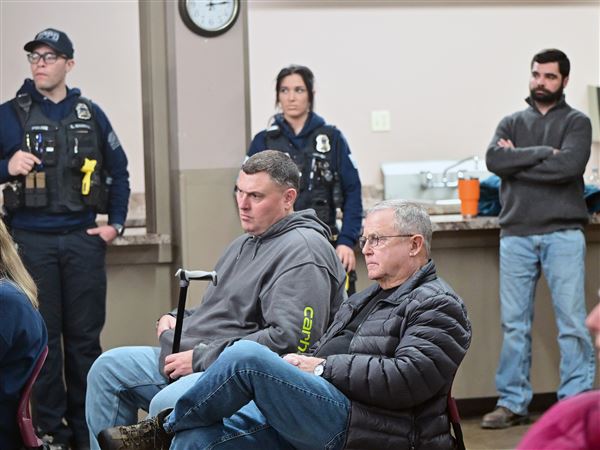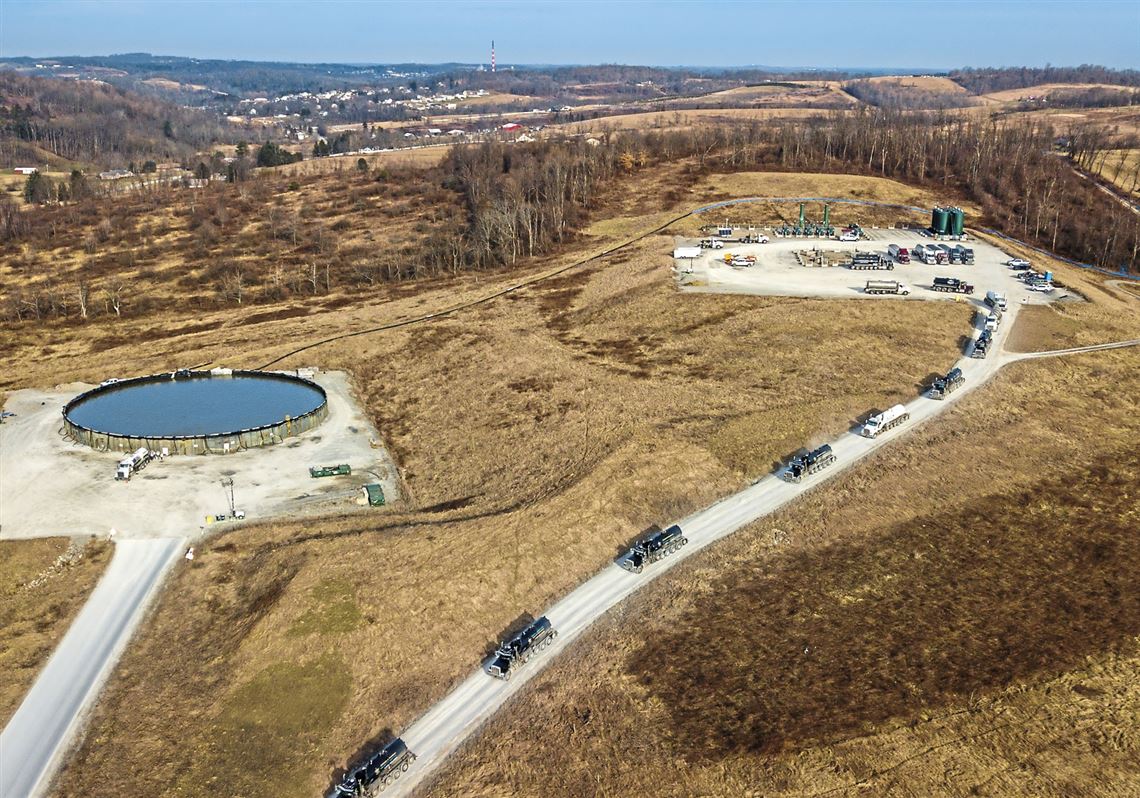Continued development of shale oil and gas is a bridge fuel gone too far, according to Dr. Brian Schwartz, senior investigator at the Geisinger Health Research Center.
Dr. Schwartz, part of a Tuesday afternoon “Science and Policy” panel at the seventh annual League of Women Voters of Pennsylvania “Shale & Public Health” conference, said the planned build-out of the shale gas industry will make it more difficult, if not impossible, to meet fossil fuel use reduction goals needed to mitigate climate change.
“We might be able to manage the local health risks of shale gas development, but the climate risks are terrifying and I’m not sure we can manage those,” said Dr. Schwartz, who is also co-director of the program on global sustainability and health at the Johns Hopkins Bloomberg School of Public Health and a fellow at the Post Carbon Institute. “This is no short bridge the oil and gas industry is building. It’s spending millions and millions of dollars on investments and that is going to destroy the climate.”
Over a little more than a decade, development of cheaper shale gas has all but displaced coal for electric power generation in the U.S., where it’s been touted by the industry as a “bridge fuel” to renewables like solar and wind power. Pennsylvania, the fourth biggest emitter of greenhouse gases in the U.S., has set statewide climate goals, aiming to reduce emissions of the climate-changing gases by 26% by 2025 and by 80% by 2050, compared with 2005 levels.
A number of recent studies, including several discussed at the conference, have found public health impacts affecting people living near shale gas operations. Although the gas industry has criticized many of the studies, Lisa McKenzie, assistant research professor at the Colorado School of Public Health and a member of the panel, said the mounting findings of public health problems shouldn’t be ignored.
A 2014 study by Ms. McKenzie found a 30 percent increase in risk of congenital heart defects in infants living near natural gas wells. Findings of her 2019 follow-up study of 3,324 babies born in Colorado from 2005 to 2011 found a stronger, 40% to 70% higher chance of having children with congenital heart defects in families living near high intensity gas development.
“The body of scientific evidence is there,” Ms. McKenzie said. “”Doing something is limited by political will and imagination.”
Another panelist, Scott Perry, deputy secretary of the state Department of Environmental Protection Office of Oil & Gas, said natural gas is helping the state achieve air and water pollution reductions that otherwise wouldn’t be possible.
“Without gas we would be burning coal and seeing its impacts on water and air instead of for the first time achieving [airborne particulate] attainment,” Mr. Perry said. “Is natural gas better than renewables from a climate change perspective? Of course not.”
He added that although Maryland rejected shale gas development and New York has instituted a moratorium, Pennsylvania has decided to drill.
“The debate over whether Pennsylvania should ban fracking is not fruitful,” Mr. Perry said. “It’s a policy choice that’s been made.”
He said there’s a long-term need for natural gas, adding, “It’s how we heat homes in Pittsburgh and Scranton.” It would be cost prohibitive to change that now, he said, and would disproportionately affect the poor.
He said recent study results may warrant additional air pollution regulations but those would “most likely” need to happen at the federal level.
The daylong conference, attended by 150, was hosted at the University Club in Oakland by the University of Pittsburgh Graduate School of Public Health.
The Marcellus Shale Coalition did not have a representative on the panel but, in response to a request for comment, issued a statement saying banning shale gas development would bring the U.S. economy to a standstill.
“It would result is the loss of hundreds of thousands of good-paying jobs and wipeout billions of dollars of capital investment in Pennsylvania while reversing the environmental progress we have gained thanks to natural gas,” the coalition’s statement said. “Supporting and growing domestic shale production should be a core focus of any serious policy discussion aimed at continuing environmental progress, economic growth and American security.”
Liz Chapman, of Echelon Applied Geoscience consulting, which investigates stray gas incidents in the Appalachian Basin, including Pennsylvania, said the shale gas industry has significantly improved operations since 2010.
“The industry has come a long way here,” Ms. Chapman said, “in dealing with surface spills, responding to methane releases and to environmental issues that have occurred in the course of the play’s development.
Bobby Zirkin, a Maryland state senator and panelist, said the state considered the public health studies before adopting its shale gas drilling ban.
“We spent years listening to the studies and the claims of potential health effects. And we know about the economic benefits,” Mr. Zirkin said. “But our job as a state is not to put our people at risk.”
First Published: November 20, 2019, 2:45 a.m.

















